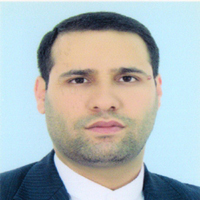Comparison and analyzing of Quranic metaphors from the of traditinal and Cognitive linguists
Metaphor is one of the expressional Iʻjāz, and the Qur'an uses it to explain its meanings and mission. Metaphor in the traditional sense uses words other than their original meaning, but in this sense, it alone cannot show the worldview, structure and thoughts hidden in the verses. According to the metaphor, we can compare two classical and cognitive-linguistic viewpoints. It indicates that in traditional linguistics, metaphor has been merely a tool for the beauty of language expressions. Still, metaphor is a new look at how mental processes emerge and become linguistic elements in cognitive linguistics. The present study, with an analytical-descriptive method, aimed to evaluate metaphor regarding the traditional rhetoric scholars and cognitive linguists and the role of cognitive metaphor in Quranic explanations and analyses. The results, in the form of knowing the ways of distinguishing cognitive metaphor from traditional metaphor, and examining the verses according to metaphorical conceptualisation, indicated that a tool such as conceptual metaphor in the cognitive analysis of the verses and achieving the semantic principles governing the Quranic conceptualisation provides the possibility for the audience of the Qur'an in discovering the Qur'anic layers that not possible in the traditional metaphor.
-
Musical literature in the recitation of the Holy Quran
Rohollah Mohamadali Nejad, Sara Heydari *
Journal of Theology of Art, -
فهرست پیکره - بنیاد واژه های دانشگاهی زبان فارسی: استخراج و اعتبارسنجی به روش ارزیابی عملکرد خارج از نمونه
معصومه استاجی، مجتبی الماسی*، رضا مراد صحرائی
نشریه پژوهش های زبان شناسی تطبیقی، پاییز و زمستان 1403 -
Relativism and Absolutism in theHermeneutic Paradigm of Contemporary Quranic Studies
Fardin Darabi, *
Quranic Studies and Islamic Culture, -
Ideology and Persian Language Teaching Abroad: Critical Discourse Analysis of Iranian Identity in the Textbook Persian Language Course Based on Van Dijk's Framework (2006)
Rezamorad Sahraei, Fatemeh Tabasi *
Journal of Language Science,




